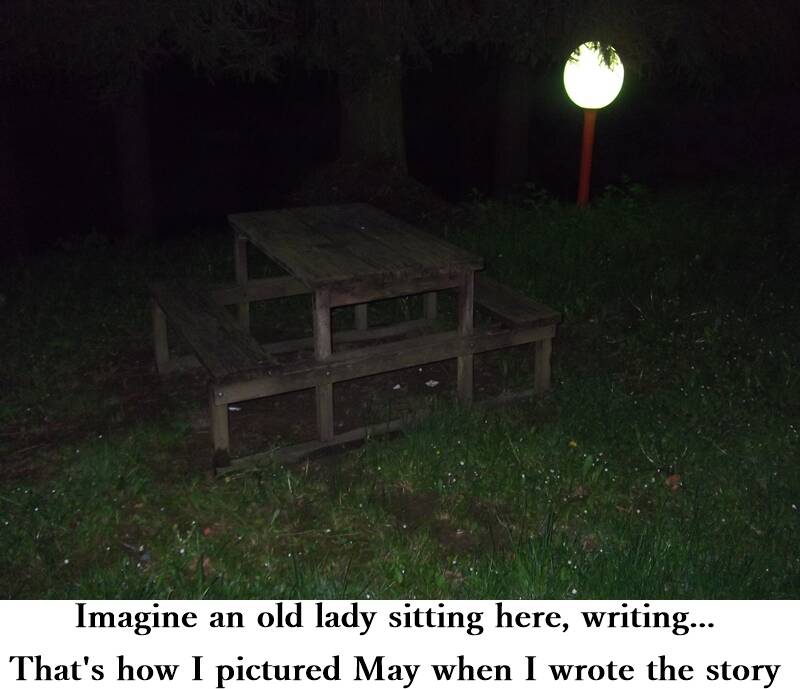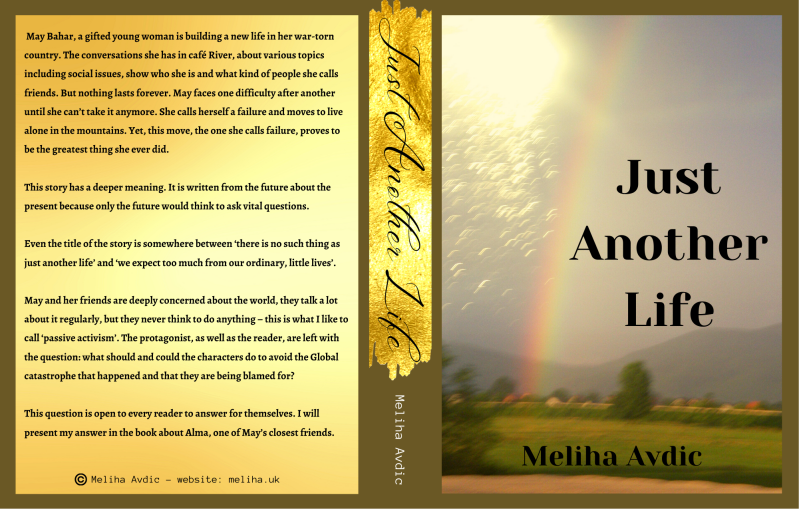One woman’s story. A generation’s voice.

Told entirely through dialogue, Just Another Life strips storytelling down to its raw essence: the human voice. It invites readers to listen in as if seated at the next table where ordinary people wrestle with extraordinary questions. Both intimate and philosophical, tragic yet laced with humor, bold, unconventional, and deeply human, this novel is a testament to the resilience of ordinary lives, and a reminder that no life is truly ordinary.
May Bahar has lived through war, exile, love, and betrayal. Now, in the quiet of her later years, she sits down to tell her story, so that silence is not a mistake she makes. Her greatest battle is to be understood, to set the record straight.
Through conversations with friends, family, and strangers, May unravels the struggles of a generation scarred by conflict and displacement. Each voice reveals fragments of survival, resilience, and the relentless search for dignity in a broken world. Philosophical debates on justice, social and economics systems, gender differences, faith, and identity sit alongside moments of humor, intimacy, and loss.
Plot of the story is shadowed by the extraordinary ideas, and it is easy to overlook the fact that the story follows the conventional three-act structure. May returns home to build a new life. Obstacles are small and constantly increasing, until a revelation about her estranged father. Combination of previous events help to resolve this issue. The protagonist accomplishes her goal of building a new life, finding a community, a place to belong, and to feel safe but in a way she never expected, in fact, initially, she considers the key decision that leads to the success as her greatest failure.

This book is not available on Amazon. It use to be, first edition was on there, but now it is available through other sites which you can easily get to through the shop or the links I've left here:

Characters feel lived-in—humorous, flawed, resilient.
Scenes such as May remembering Zooch or sharing about her mother’s death evoke emotional resonance embedded in everyday life.
The narrative’s unedited, dialogue-only feel contributes to authenticity and intimacy.
Just Another Life is a dialogue‑driven, reflective novel framed as an elderly May Bahar recounting her youth to her granddaughter. The dialogue-only style—absent of stage directions—invites readers to eavesdrop on characters as they unpack memory, trauma, displacement, and identity.
The Unique style - dialogue‑only format - creates immediacy and powerful engagement with ideas. Leading to Thought‑provoking debate: Readers are prompted to reflect on ethics, power, and society. And unavoidable Emotional resonance in many scenes such as the revelation about May’s father or Alma’s survival, are deeply moving.
Just Another Life is a powerful and unconventional novel about memory, belonging, and the ordinary voices that carry extraordinary truths. Meliha Avdić weaves humor, philosophy, and raw emotion into a story that proves no life is ever just another.
May’s Resolve and Legacy
“That part of my life is etched on the surface of my brain… every time I close my eyes… I see those days. … Somewhere inside there is desire to say things I thought I’d take to the grave.”
This passage reveals May’s urgency in preserving truth and bearing witness—not for glory, but to set the record straight.
Humor Amid Hardship
“Zooch: ‘You look fat… It’ll be easier to go over you than round you.’ … ‘Best morning of my life. But the point is… I had only six this morning…’”
In scenes like this, technically trivial conversations reveal post-war resilience and humanity.
Leila’s Philosophy on Death and Worry
“‘Staying alive was a challenge.’ … ‘Worrying does no good whatsoever… however, we still worry. … I’ve seen people who hold their bleeding child…but they are in pain and not worried… it's almost like a proof of their faith in God.’”
Leila’s pragmatism, grounded in faith and context, contrasts with May’s existential rumination and reveals how faith and suffering intertwine as coping mechanisms.
Character Insight—Leila
“Leila was a strange combination of emotional, and blunt to the point of brutality… ‘He is dead… he’s gone forever. There’s nothing I can do about it.’”
Leila’s economy of words underscores inner strength—grief acknowledged, but held at arm’s length.
The quotes showcase how Avdić writes ordinary life with extraordinary humanity—measuring resilience not by grand events, but by shared meals, family jokes, and quiet philosophical reckonings. The juxtaposition of hardcore pragmatists like Leila with nostalgic dreamers like May gives the novel its emotional and intellectual tension.
There’s a poignant irony: May writes to convince future generations that their era was complex—not simplistic—and that personal stories matter. This meta-awareness gives the book a resonance beyond the immediate setting; it's a meditation on the importance of witness and memory.
Just Another Life (first published May 1, 2012; later expanded to a second edition of ~495 pages in 2022) is a dialogue‑driven novel by Bosnian‑British author Meliha Avdić, blending philosophical reflection with personal memory. The protagonist, May Bahar, recounts her younger life from the vantage point of old age—prompting deep questions about identity, social justice, and belonging.
For more info please klick the link:
Note from the author:
I chose to write in dialogue not only to bring truth and intimacy into the story, but also to encourage a change in the way we carry out dialogues. ‘One-line-quotes’ such as those in TV shows and movies have made their way into reality. This has taken away from our ability to articulate deep thoughts and feelings that need more than one-line. It has also made us impatient, as if we are already full of our own interiority we have no space for others. Which would make sense. After all, it is through speaking that we ‘empty’ ourselves, and then we can afford to hear others. I think hearing each other is a vital element of human relationships. And yes, it can take patience, but patience is a saintly virtue that is useful to have any day of the week. So if this novel helps readers become a little more patient, that alone would make my book worth reading.
Ideas over plot came from the character (May) herself. She’s your typical ‘What could I do, I’m only one person’. We see concerned citizens of the world believing this all the time. Also, that’s where the title of the book comes from. And I thought if I show a character who regrets not doing more, regrets being just a ‘passive activist’, maybe more people would be inspired to become ‘active activists’. We could turn this world into whatever we want it to be by being more active.
Turning her greatest failure into that one decision that leads her to have all she ever wanted in life (a home, community, place to call her own) is the game of fate. Sometimes in life, when we consider that something is ‘in the bag’, everything that can go wrong, does, and it all falls apart. Other times, we make ‘long shots’ because it’s the only option we have, we fire the arrow into the fog. Next thing we know, by some miracle the arrow hit the bull’s eye. I thought that would be a fun twist on the life of this ordinary yet extraordinary character.
No book is right for everyone, but I do believe there are many people in the world who would enjoy a reflective read, food for thought, and a motivational story that has no magic in it, yet it feels akin to magic. If you are that sort, I hope you will give this book a try.





